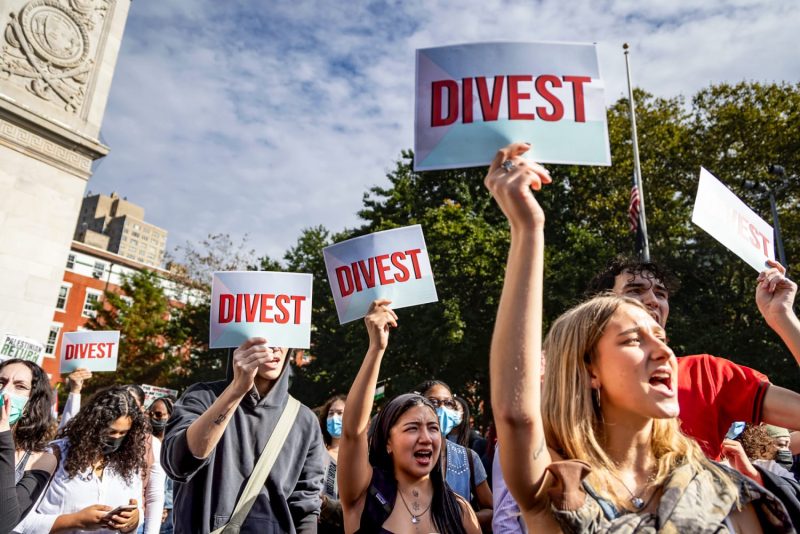
Unveiling the Push for College Divestment from Israel: A Closer Look
In recent times, college campuses around the world have become hotbeds for activism and social change. One of the latest movements sweeping across universities is the call for institutions to divest from ties to Israel. This movement has gained momentum among college protesters who believe that such ties contribute to the ongoing Israeli-Palestinian conflict in a negative way.
But what exactly does it mean for a school to divest from ties to Israel? In simple terms, divestment refers to the process of a university or any entity selling off its investments or financial holdings related to a specific country, corporation, or industry for ethical or political reasons. In the context of Israel, the call for divestment aims to pressure academic institutions to disassociate themselves from any financial ties that may support Israeli policies perceived as oppressive towards Palestinians.
The concept of divestment from Israel is rooted in the broader movement for Palestinian liberation and solidarity. Supporters argue that divestment can be an effective nonviolent strategy to hold Israel accountable for its actions, particularly in the occupied Palestinian territories. By divesting from companies that have ties to Israel, protesters believe that universities can send a strong message of condemnation against Israeli government policies.
The divestment movement has sparked debates and controversies on college campuses, with proponents arguing that it is a form of activism to challenge injustices, while opponents view it as a form of anti-Semitism or singling out Israel unfairly. Supporters of divestment emphasize that it is about targeting specific policies and practices rather than a blanket condemnation of Israel or its people.
Implementing a divestment campaign involves research, advocacy, and engagement with university stakeholders. College protesters often form student groups or coalitions to raise awareness about the issue and gather support for their cause. They may organize rallies, petitions, teach-ins, and other events to educate their peers and faculty about the impacts of divestment from Israel.
Opponents of divestment argue that targeting Israel specifically is unfair and could undermine academic freedom and dialogue on campus. They point out that divestment may have limited impact on changing government policies and could potentially harm the academic and research collaborations between institutions in Israel and around the world.
Ultimately, the call for universities to divest from ties to Israel raises important questions about the role of academia in global conflicts and human rights issues. It forces institutions to consider their ethical responsibilities and the impact of their financial decisions on marginalized communities. As the divestment movement continues to gain traction, it highlights the power of students and faculty to advocate for change and use their leverage to influence institutional practices.
